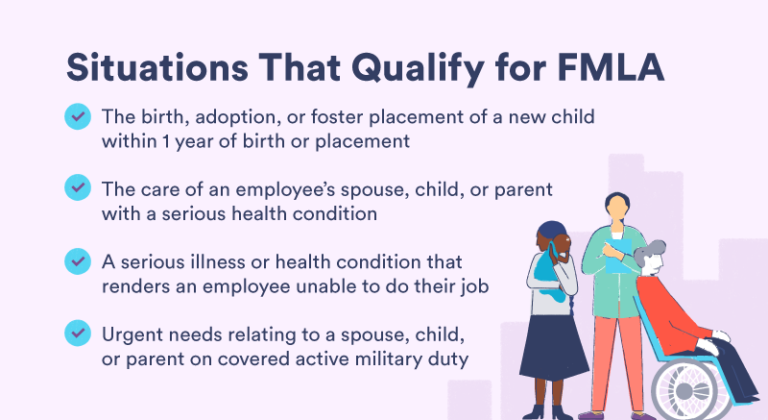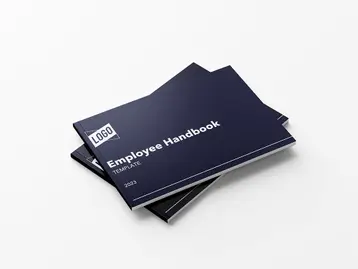
Independent contractors are becoming the future of work for many across the globe. In the United States alone, freelancers will likely make up 50% of the workforce by 2027. And there are several reasons why. Workers love the flexibility, autonomy, and potentially better pay that independent contracting provides. In addition, organizations enjoy the cost-savings of hiring a professional without needing to budget for benefits, business expenses, or workers' compensation. It's often a win-win.
Freelancers aren't employees, and therefore need their independent contractor policy.
But for HR professionals and small businesses who are used to W-2 employees, creating a policy for freelancers can be daunting. After all, an independent contractor is not an employee. And failure to correctly classify workers in the eyes of the IRS can result in hefty penalties. An independent contractor policy can help employers navigate the differences between employees and contractors and avoid potential compliance misfires.
The differences between independent contractors and employees
Before creating an independent contractor policy, it is essential to distinguish the differences between an employee and an independent contractor.
Independent contractors withhold their own taxes
Employees get a W-2 tax form and are responsible for how they choose to file their taxes, while independent contractors are responsible for withholding their own taxes via a 1099 form. Therefore, providing a W-9 form rather than a 1099 is indicative that the worker is not a full-time or temporary employee but a contractor.
Freelancers don't get all the benefits
Independent contractors are also not eligible for certain things that employees are, such as health benefits and employee bonuses. Another thing to keep in mind when creating your independent contractor policy is that independent contractors often aren't obligated to comply with the same company policies as employees and have different guidelines for termination.
Independent contractors often aren't obligated to comply with the same company policies.
Should you hire full-time employees or independent contractors?
The IRS states that employers much consider the level of control and independence. Some factors that help determine what degree of control a worker has included:
- How much control the worker has over their job.
- How the worker is paid and if they are reimbursed for tools and other supplies needed to complete the job.
- Is the worker eligible for benefits such as insurance and pension plans?
Closely evaluate the entire relationship by considering the degree of control you possess over your employee and determine the worker's classification.
State and federal laws
Before 2021, the Department of Labor (DOL) used several factors known as the IRS Common Law to analyze if a worker was an employee or independent contractor. However, this ruling was withdrawn on May 5th, 2021, by the DOL. The organization stated that the rule was inconsistent with the fair labor standards act. Determine whether the worker falls into the freelancer category before sending them the independent contractor policy.
ABC test
However, there are also state laws and regulations that employers must adhere to. They vary depending on the state. For instance, states like Florida, Michigan, and Iowa use the IRS Common Law Test to determine employee classification. Many other states use the ABC test to determine classification. According to the ABC test, a worker is an independent contractor if all three are true:
- They are free from the control of the hiring entity.
- The worker performs work outside the usual course of the business.
- The worker is engaged in independently established trade, occupation, or business.
So far, 33 states have implemented the ABC test in different formats. It is generally considered more strict than the IRS Common Law Test, which considers about 20 factors.
Structuring your independent contractor policy
Ensure every freelancer has agreed to a formal policy.
It's recommended to have a formal independent contractor policy and use it for every independent contractor that a business interacts with. To avoid potential misclassification, a policy should require that:
- All independent contractors sign a W-9 form upon hiring
- Freelancers sign an independent contractor agreement that highlights their engagement
- Management does not try to control a freelancer's schedule, although they may track time for billing purposes
The independent contractor policy and agreement do not need to be lengthy, but they should have specific core components.
Personal data
There should be a clear and detailed explanation of how and where contractor personal data is kept and managed, how and when independent contractors are paid, and the criteria used to assess whether you will hire an independent contractor for ongoing work in the future.
Terms and conditions
The terms and conditions of the agreement should state the names and locations of the parties involved, along with dates and descriptions of assigned tasks. List the responsibilities of each party, including what you expect the contractor to deliver. The independent contractor policy should then outline the laws in the state that the policy is signed. Finally, you should define what happens if the agreement is terminated before the agreed-upon date.
Company data
Data security is another consideration you need to include in your independent contractor policy. The last thing any organization wants is to face non-compliance fees. With data protection laws on the rise, it would be proactivIf you haven’t had any experiences with the Family and Medical Leave Act — or FMLA for short — before COVID-19, chances are you have since then. In March 2020 Congress passed the Families First Coronavirus Response Act (FFCRA) which expanded access to FMLA benefits through the end of the year. Now that the light at the end of the tunnel is beginning to show, it’s time to catch up on everything you were just treading water to get through last year. Chances are one of those things is brushing up on what FMLA is and what it means for you as a small business.
What is FMLA?
FMLA was enacted in 1993 with the intention of granting “family and temporary medical leave under certain circumstances.” So, what does that mean? FMLA essentially entitles employees of certain employers (all public agencies, schools, and private sector employers with 50 or more employees) to take unpaid leave for specific family and medical reasons while also ensuring that they won’t lose their job in the process. FMLA also allows those on FMLA leave to continue to receive their health insurance benefits as if they were still actively working.
What are the situations that qualify for FMLA?
Under the law, eligible employees can take 12 work weeks of leave during a one-year period for:
- The birth, adoption, or foster placement of a new child within one year of birth or placement
- The care of an employee’s spouse, child, or parent with a serious health condition
- A serious illness or health condition that renders an employee unable to do their job
- Urgent needs relating to a spouse, child, or parent on covered active military duty
Employees can get 26 weeks of leave during a 12-month period if they’re taking time off to care for a covered service member with a serious illness or injury. Workers qualify if they are the service member's spouse, child, parent, or next of kin. 
What do employers need to know about FMLA?
Well, there’s truly a lot to know about FMLA if you really want to understand the ins and outs of the legislation and how it translates to everyday work activities. For those looking to go deep, The Employer’s Guide to The Family and Medical Leave Act from the Department of Labor is 76 pages of all things FMLA. It’s a great resource to keep on hand as a reference when specific situations come up.
FMLA also doesn’t apply to every employee — only those who have worked for at least one year for your company and who have worked at least 1,250 during the prior year.
In the meantime, and for those who aren’t looking to become FMLA experts, there are a few major things you’ll want to know. First, FMLA only applies to your small business if and when you have 50 or more employees. FMLA also doesn’t apply to every employee — only those who have worked for at least one year for your company and who have worked at least 1,250 during the prior year. It’s also important to note that FMLA only mandates leave — not paid leave. Many employees who take FMLA leave will naturally choose to use any accrued paid leave (think vacation days, sick days, and the like) in order to keep necessary income flowing. There are also certain notice requirements (more on that in a bit) that employees have to comply with. As an employer, you have the right to request certification from a medical professional that is treating either the employee or the person they’re taking care of that verifies the need for leave.
What do employees need to know about FMLA?
In addition to the qualifications around time worked and FMLA-covered events, there are a couple of other important things that employees should know about FMLA. First, there’s this deep dive guide on all things employees and FMLA from the Department of Labor that offers an intensive look at FMLA from the employee perspective. Next, one of the most important things for employees to know is that there’s some notification requirements. If an employee can expect that they’ll need FMLA in the future, 30 days’ notice is required. If not, employees have to give as much notice as possible.
One of the most important things for employees to know is that there’s some notification requirements. If an employee can expect that they’ll need FMLA in the future, 30 days’ notice is required.
Employees are entitled to continue receiving healthcare coverage while on leave, but their employer is allowed to require that they continue paying their share of the premium. If they decide to not come back to work after their leave, there’s a chance that their employer could ask them to repay their cost of continuing their benefits while they were on leave (this isn’t the case if they can’t return due to circumstances out of their control). Last, you have the right to come back to work at a position that is the same or equivalent to the one you had before you took leave.
How to determine if an employee is eligible for FMLA
As long as an employee meets the criteria outlined above for a situation that qualifies for FMLA and has met all of the necessary conditions for being covered by FMLA (time worked at the company, etc.), then an employee qualifies for FMLA. The biggest variable here is the medical certification element. If you ask for it, the employee has to provide it to you, so in some ways this can be considered an eligibility requirement.
How to communicate with employees on FMLA
Asking an employee to complete substantive work while on leave can amount to FMLA interference, so it’s best to avoid anything that can be construed as requiring your employee to work while on leave. Considering that they’re either ill themselves or taking care of someone close to them who is, it’s best to limit communication with an employee on FMLA leave to only the most essential communications and to do it in the least invasive way possible.e to ensure that your general contractor's activities will not jeopardize the company's security.
Once the contractor is no longer working for the company, remove any access to your systems and change shared logins.
Some technical options to consider are utilizing things such as:
- Encryption
- Firewalls
- Virtual private networks (VPNs)
- Content filtering
- Malware protection
- Authentication
Once the assignment is complete, change any usernames or passwords so that former independent contractors cannot have access once the assignment has ended.
More on creating an independent contractor policy
The biggest hurdle to hiring a freelancer is ensuring that company activities do not misuse independent contractor classification. It's important to remember that independent contractor status hinges on the lack of control a company has over its work schedule. A clear and concise independent contractor policy can help mitigate potential risks while setting expectations for your contractor. To learn more about how HR can better hire and manage freelancers, check out our guide to hiring independent contractors.
This communication is for informational purposes only; it is not legal, tax or accounting advice; and is not an offer to sell, buy or procure insurance.
This post may contain hyperlinks to websites operated by parties other than TriNet. Such hyperlinks are provided for reference only. TriNet does not control such web sites and is not responsible for their content. Inclusion of such hyperlinks on TriNet.com does not necessarily imply any endorsement of the material on such websites or association with their operators.






